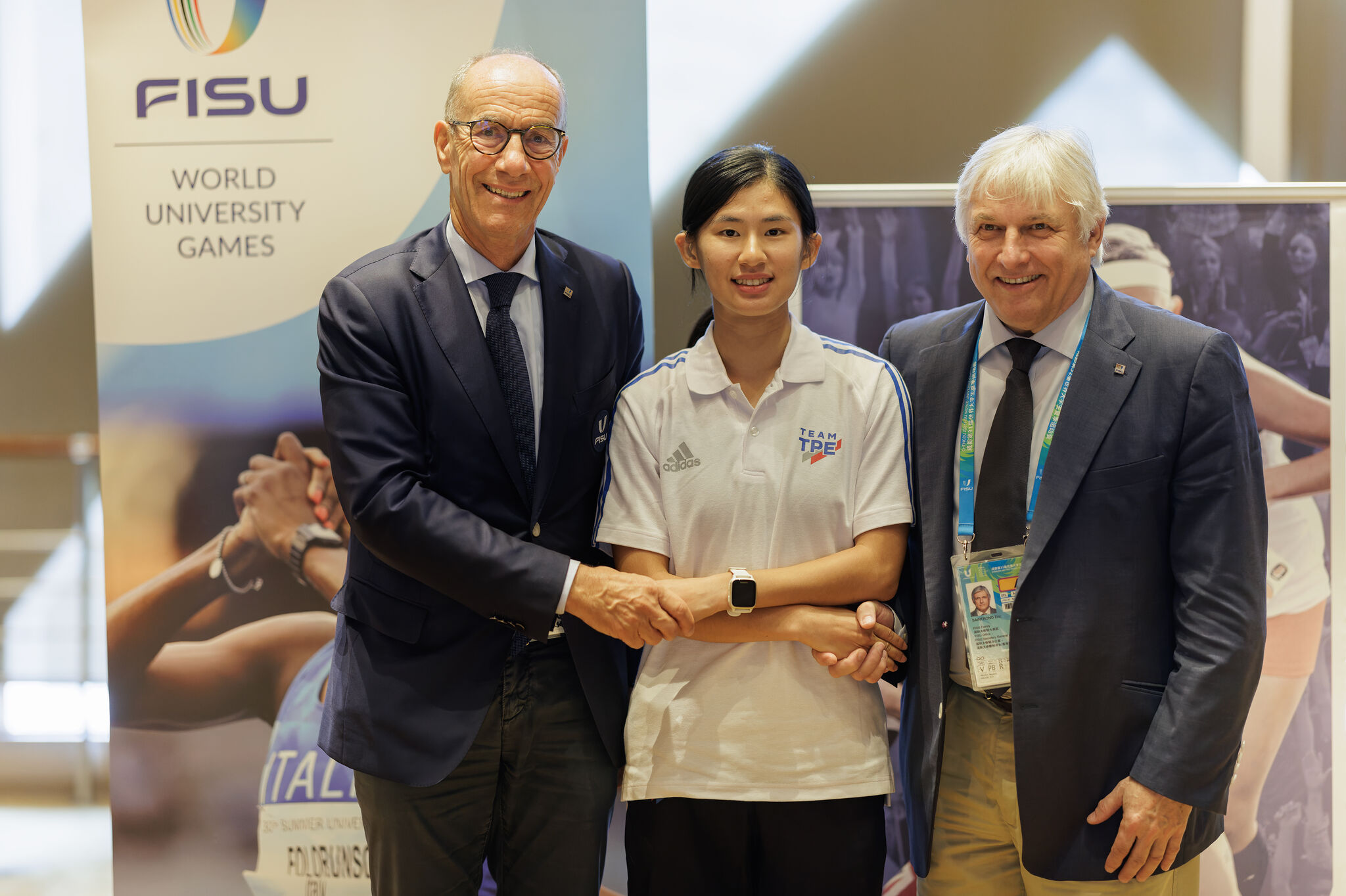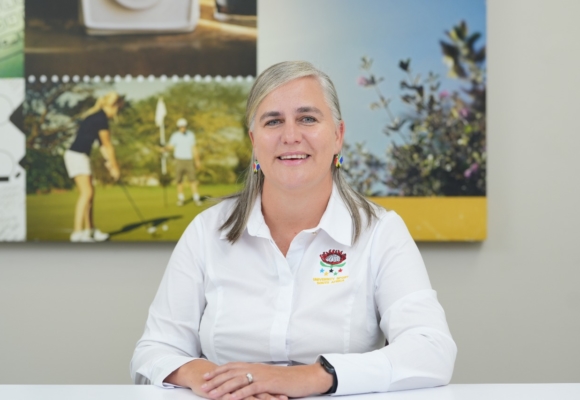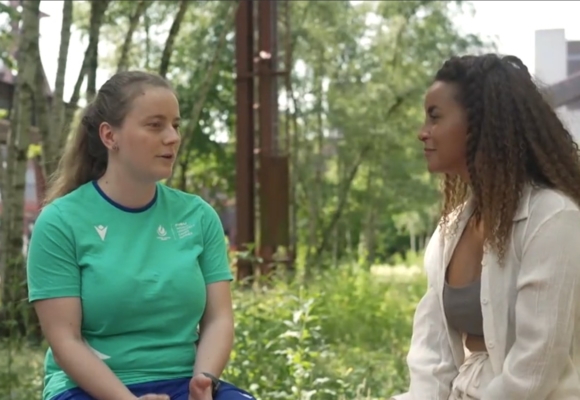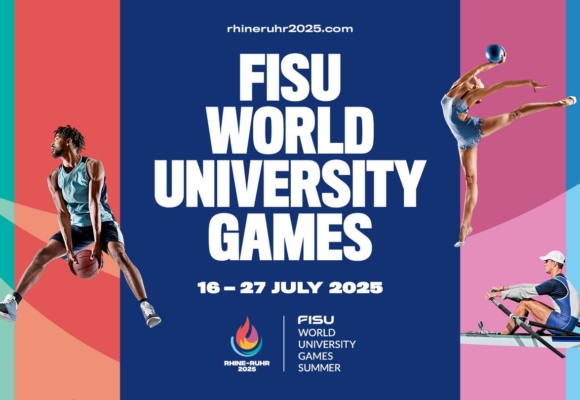“I may be different in some ways, but just like all the athletes competing in the FISU University Games, we are all striving for the same goal,” said Hsu Le, a 100m hurdler from Chinese Taipei, who is also the first deaf athlete to represent the TPE team at a FISU event.
“I am very honored and excited to participate in such an international mega sports event, to compete with elite athletes from around the world and to learn from them.” Hsu Le shared her feelings in a meeting with FISU Acting President Leonz Eder, FISU Secretary General and CEO Éric Saintrond , and the FISU Executive Committee member Tseng Ching Yu.

Hsu Le is the Deaflympics gold medalist and the deaf world record holder in the women’s 100m hurdles with a time of 13.19 seconds. She was diagnosed as congenitally deaf at the age of 2. She currently has a cochlear implant in her left ear and a hearing aid in her right ear. Because of her limited hearing, she is always 0.1 second slower than other athletes at the start, and the hearing impairment also greatly affects her sense of balance.
In order to keep up with the other athletes, HSU Le spent 6 hours a day practicing her hurdles and her balance. But none of these disadvantages and challenges have stopped her from pursuing her dream of becoming a professional hurdler.
Hsu Le said: “Originally, I was focusing on the 100m, but then my coach suggested that I switch to the 100m hurdles. Because in the 100m hurdles events, there are 10 hurdles along the track, so I can find a way to overcome my delay for the start and focus not only on my speed but also on my hurdling technique to compete in the game”.
As a University Games rookie, Hsu Le qualified for the women’s 100m hurdles semi-finals, finishing with a time of 13.75. The final result may not have been ideal for her, but Hsu Le says she’s pleased with how she performed. “I was really excited to compete with other athletes at such a fast speed. I made some mistakes along the way, but imagine if I can adjust myself correctly, I have huge potential in future events.”
Hsu Le’s story encouraged many, including the FISU officials. At the meeting, Leonz praised her: “Hsu Le is a role model, not only for the athletes, but also for the whole FISU society. Hsu Le’s story can encourage other students with special needs to also join and compete in FISU events”.
Hsu Le’s story also brings the issue of inclusivity to the table. During the meeting, Hsu Le expressed some of the challenges she faced during the competition, in particular the volume of the starting gun, which had a significant impact on her performance. In this regard, Éric Saintrond mentioned that FISU’s current competition system needs to be reviewed and improved with all these talented athletes in mind.
Leonz Eder also stated that FISU’s future goal is to integrate athletes from different backgrounds and create an inclusive platform for all student athletes.
ARTICLE WRITTEN BY NAOMI MA



